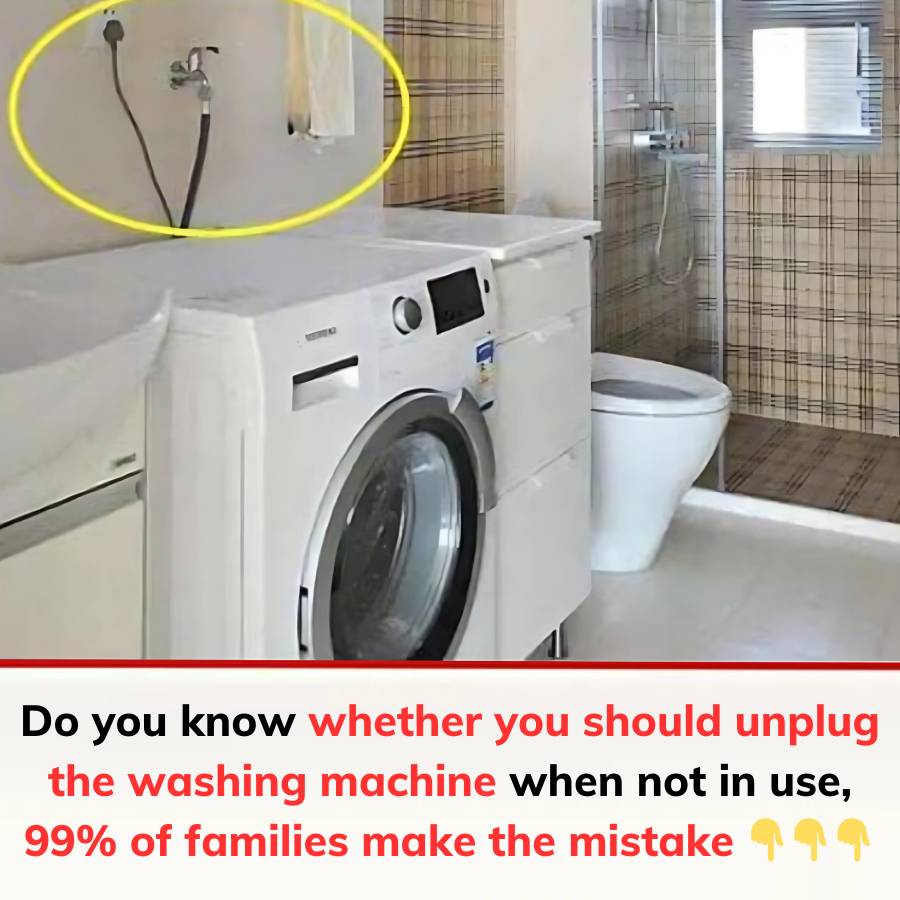ADVERTISEMENT
Should the Washing Machine Be Unplugged After Use?
When it comes to maintaining household appliances, the question of whether to unplug devices like the washing machine after use is a common one. Some people believe it’s essential to unplug to prevent electrical hazards or conserve energy, while others argue that it’s unnecessary. So, what’s the truth? Should you unplug your washing machine after each use? Let’s dive into the pros and cons of this practice and provide a clear answer.
Understanding the Power Usage of Washing Machines
First, let’s take a look at how washing machines work when they’re plugged in.
- Electrical Consumption: Unlike appliances like toasters or hairdryers, washing machines don’t continuously draw power when not in use. Once the cycle is complete, the machine typically stops using electricity, unless it has features like a smart system or digital display that stays powered on.
- Standby Power: Many modern washing machines have energy-saving features that allow them to draw minimal standby power. This is known as “phantom” or “vampire” power, which occurs when appliances remain plugged in but are in an idle state. For most washing machines, the energy consumed in this state is so small that unplugging them regularly won’t lead to significant energy savings.
- Smart Features: If your washing machine has Wi-Fi connectivity, remote controls, or smart features that allow you to operate the appliance via an app, it will need to remain plugged in to access these features. Unplugging it would disable these conveniences.
Pros of Unplugging the Washing Machine After Use
While it’s not always necessary, there are a few advantages to unplugging your washing machine after each cycle:
1. Power Surge Protection
Electrical surges can happen unexpectedly due to issues like lightning strikes, power outages, or even fluctuations in the grid. A surge protector can help shield your appliance, but simply unplugging the machine is the most foolproof way to avoid damage from such spikes. If your washing machine is in an area where power surges are common, unplugging it after use can be an extra precaution to protect the sensitive electrical components inside the machine.
2. Safety Concerns
For homes with older wiring or if you’re concerned about potential electrical issues, unplugging appliances like washing machines can help reduce the risk of electrical fires. Washing machines have high voltage and complex electrical systems, and while it’s unlikely, there’s always the small chance of an internal malfunction. Unplugging the machine can add an extra layer of safety, especially if you’re leaving the house or won’t be using it for a few days.
3. Energy Conservation
Though the energy savings are minimal, unplugging your washing machine when it’s not in use can eliminate even the small amount of standby power it might consume. If you’re focused on cutting down every little bit of electricity usage in your home, unplugging your washing machine after each use might contribute to your overall savings.
4. Preventing Unwanted Beeps and Alerts
Some washing machines may emit unnecessary beeps or sounds, especially if you leave them plugged in or in standby mode. Unplugging it will stop this, providing a quieter environment, particularly in the early mornings or late at night.
Cons of Unplugging the Washing Machine After Use
While unplugging your washing machine might seem like a good idea, there are a few disadvantages to this practice.
1. Convenience and Smart Features
If your washing machine has smart features (remote access, app-based controls, scheduling, etc.), unplugging the machine would disable these options. For those who use these features to control the washing machine remotely or set schedules, unplugging would defeat the purpose of having these conveniences.
2. Wear and Tear on the Plug and Socket
Frequently plugging and unplugging your washing machine can cause wear and tear on both the appliance’s plug and the outlet. This could lead to loose connections, which over time might create a safety hazard or lead to inefficient power usage. Consistently plugging and unplugging could also result in the deterioration of the cord, especially if the plug is not handled gently.
3. No Significant Energy Savings
As mentioned earlier, washing machines don’t use muc
